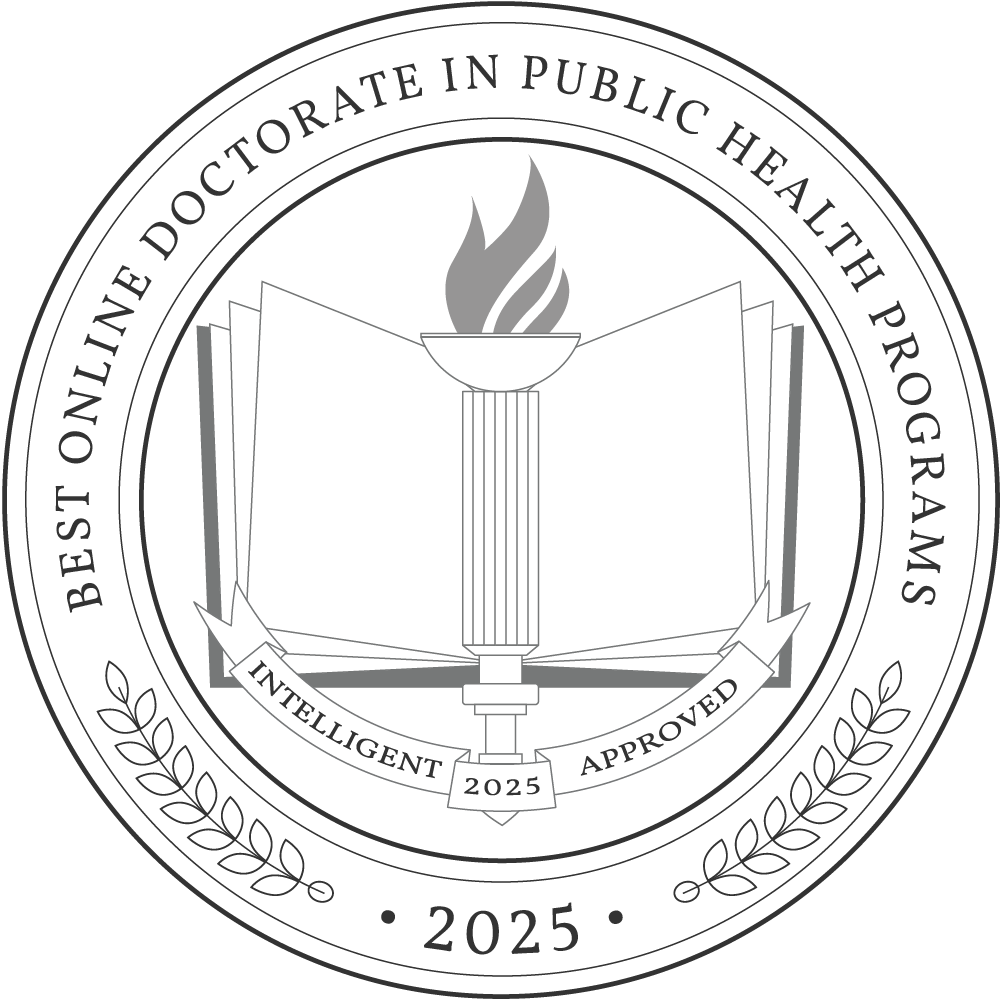Why This Matters
-
33% OF EPIDEMIOLOGIST JOBS REQUIRE AT LEAST A DOCTORAL DEGREE
You’ll need a doctorate for 11% of epidemiologist jobs, and an additional 22% require post-doctoral training as well.
-
27% INCREASE IN THE NEED FOR EPIDEMIOLOGISTS BY 2032
The Bureau of Labor Statistics (BLS) expects that there will be 2,700 more jobs for epidemiologists in 2032 than there were in 2022.
-
POTENTIAL TO EARN MORE THAN $123,430
While the average salary for epidemiologists is $78,520 per year, the top 10% of workers in this field make over $123,430.
Our Research
This list features some of the best online doctorate in public health degree programs at top colleges nationwide. Each school featured is a nonprofit, accredited institution — either public or private — with a high standard of academic quality for post-secondary education. Many of the programs on our list have been accredited by the Council on Education for Public Health (CEPH), which assesses the objectives, quality, and overall effectiveness of public health-related programs.
We evaluated each school’s program on admission, retention, and graduation rates as well as tuition costs, faculty, reputation, and the resources provided for online students. Then, we calculated the Intelligent Score on a scale of 0 to 100. Read more about our ranking methodology.
Next, we compared this comprehensive list of online doctorate in public health degree programs to a list of aggregated college rankings from reputable publications like U.S. News & World Report, among others, to simplify a student’s college search. We pored through these rankings so students don’t have to.
- 62 hours to write this article
- 56 universities and colleges we assessed
- 99 education programs we compared
The Top 50 Online Doctorate in Public Health Programs

What You Should Know About This Degree
When researching programs for an online doctorate in public health, it’s important to check that the school you select is accredited by a legitimate organization. You can check a school’s accreditation status using the Department of Education’s Database of Postsecondary Institutions and Programs.
The outlook for graduates of these programs is bright. Career options include epidemiologist, health department director, community health manager, and public health consultant. You may also want to consider a career in education by joining the faculty of a postsecondary institution or providing guest lectures.
Before obtaining a doctorate, some programs might require you to have a master’s degree, but others may accept you with just a bachelor’s degree. Prior to applying for a program, make sure you understand its prerequisites.
What’s Next?
Here are some questions to ask when researching online doctorate in public health programs:
- Am I eligible for this program? Every online doctorate in public health program has different requirements, and it’s important to make sure you have all the prerequisites before you apply. For example, some programs may require you to have a master’s or bachelor’s degree in a field related to public health, such as biology or public policy.
- How long does it take to complete this online degree? Most online doctorate in public health programs take about three years to complete.
- What financial aid opportunities are available? With the help of grants, fellowships, and other resources, you may even be able to earn your doctorate for free.
It’s important to take note of application deadlines and processes for every program that you’re interested in. Most schools make this information readily available on their website.
If you require financing for your degree, it’s also important to keep track of financial aid application deadlines, as well as any scholarships, grants, or fellowships you plan on applying for.
